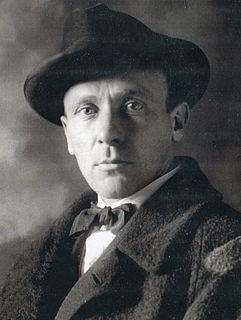A Quote by Janet Frame
I inhabited a territory of loneliness which resembles the place where the dying spend their time before death, and from where those who do return, living, to the world bring, inevitably, a unique point of view that is a nightmare, a treasure, and a lifelong possession.[It is] equal in its rapture and chilling exposure [to] the neighbourhood of the ancient gods and goddesses.
Related Quotes
When one existentially awakens from within, the relation of birth-and-death is not seen as a sequential change from the former to the latter. Rather, living as it is, is no more than dying, and at the same time there is no living separate from dying. This means that life itself is death and death itself is life. That is, we do not shift sequentially from birth to death, but undergo living-dying in each and every moment.
As soon as we put something into words, we devalue it in a strange way. We think we have plunged into the depths of the abyss, and when we return to the surface the drop of water on our pale fingertips no longer resembles the sea from which it comes. We delude ourselves that we have discovered a wonderful treasure trove, and when we return to the light of day we find that we have brought back only false stones and shards of glass; and yet the treasure goes on glimmering in the dark, unaltered.
Don't depend on death to liberate you from your imperfections. You are exactly the same after death as you were before. Nothing changes; you only give up the body. If you are a thief or a liar or a cheater before death, you don't become an angel merely by dying. If such were possible, then let us all go and jump in the ocean now and become angels at once! Whatever you have made of yourself thus far, so will you be hereafter. And when you reincarnate, you will bring that same nature with you. To change, you have to make the effort. This world is the place to do it.
It has become, in my view, a bit too trendy to regard the acceptance of death as something tantamount to intrinsic dignity. Of course I agree with the preacher of Ecclesiastes that there is a time to love and a time to die - and when my skein runs out I hope to face the end calmly and in my own way. For most situations, however, I prefer the more martial view that death is the ultimate enemy - and I find nothing reproachable in those who rage mightily against the dying of the light.
Are not the thoughts of the dying often turned towards the practical, painful, obscure, visceral aspect, towards the "seamy side" of death which is, as it happens, the side that death actually presents to them and forces them to feel, and which far more closely resembles a crushing burden, a difficulty in breathing, a destroying thirst, than the abstract idea to which we are accustomed to give the name of Death?
How sad, ye Gods, how sad the world is at evening, how mysterious the mists over the swamps! You will know it when you have wandered astray in those mists, when you have suffered greatly before dying, when you have walked through the world carrying an unbearable burden. You know it two when you are weary and ready to leave this earth without regret; its mists; its swamps and its rivers; ready to give yourself into the arms of death with a light heart, knowing that death alone can comfort you.
Thus, I always began by assuming the worst; my appeal was dismissed. That meant, of course, I was to die. Sooner than others, obviously. 'But,' I reminded myself, 'it's common knowledge that life isn't worth living, anyhow.' And, on a wide view, I could see that it makes little difference whether one dies at the age of thirty or threescore and ten-- since, in either case, other men will continue living, the world will go on as before. Also, whether I died now or forty years hence, this business of dying had to be got through, inevitably.






































